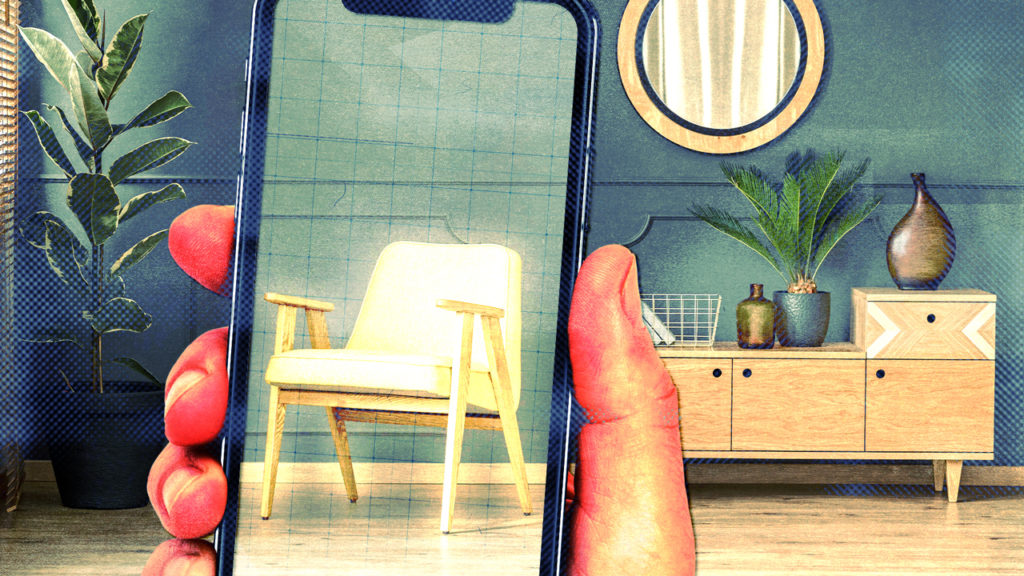Kmart Australia launched a mobile augmented reality (AR) ad campaign that lets consumers see its furniture and home decor products in real-life context. The campaign taps into Australia’s growing interest in the technology, as well as the retailer’s pursuit of digital engagement.
The mobile ad campaign, created by OmniVirt and launched August 1, is being served programmatically across a number of websites including Buzzfeed and Apartment Therapy. Selecting the display ad allows consumers to virtually place 3D rendered merchandise into their environment using their mobile device’s front-facing camera. No app download is required.
The budget retailer campaign continues a trend of brands using augmented reality to close the “imagination gap” between visualizing a product and purchase. Similar campaigns and dedicated apps have been employed by IKEA, The Home Depot, Pottery Barn, Overstock and Lowe’s, among others.
Kmart Australia, a subsidiary of Wesfarmers, unrelated to the US chains, reported an eight percent revenue increase in 2018 and “strong performances” in the sale of home merchandise. The brand attributed this growth to its expanded online channels and 10 new retail locations opened throughout the year.
“With more new stores opening across Australia and New Zealand, the growth of our online business and expansion into new markets, we are on a mission to improve the Kmart shopping experience for all our customers, who are at the heart of everything we do,” the company stated In a June 2019 job post for a head of digital marketing.
In a sign that it’s a digital-first road ahead for the brand, one of the key responsibilities listed in the job posts is the expectation to “transition the marketing model to fully embrace digital engagement with [Kmart Australia] customers.”
The Australian government has invested time and resources into the development of AR, VR and 3D web technologies through a dedicated laboratory. In March 2018, Australia’s federal research agency—Commonwealth Scientific and Industrial Research Organisation (CSIRO)—announced The Immersive Environments Lab dedicated to this purpose.
The country has also attracted global technology brands in recent years with Alibaba, Dialog, Square and Cybergym establishing regional headquarters in Victoria.
In 2018, Magnify World Expo was held in Melbourne for the first time as part of the Victorian Government Digital Innovation Festival. AR and VR are expected to become a $150 billion market across all industry sectors, according to Magnify World head of innovation Matt Coleman.
“We think there’s going to be around a $1.6 billion AU ($1 billion USD) revenue opportunity for new companies and corporates in the Australian market over the next two years,” Coleman told ZDNet. “It’s much bigger than everybody thinks.”

